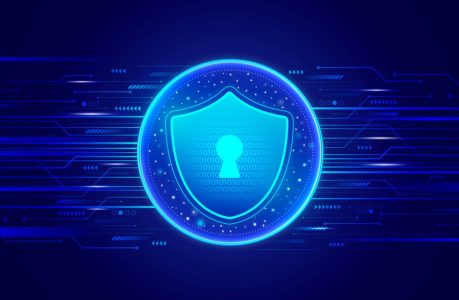Five Cybersecurity Best Practices For Crypto Holders

Cryptocurrency in the US has skyrocketed in popularity in recent years, but unfortunately, so has cybercrime and theft in the crypto world. Taking steps to protect your cryptocurrency holdings is essential to avoid costly losses and threats to your private data.
Checkout Five Prime Cybersecurity Best Practices For Crypto Holders
Here are five best cybersecurity practices for keeping your crypto secure in 2023.
1: Keep Most of Your Crypto in a Secure Digital Wallet
Don’t keep your cryptocurrency stored in accounts on exchanges and other investment platforms. Even if they advertise the fact that your account funds are secure, they probably don’t have a high enough level of security to protect against the ever-advancing would-be crypto thieves. You are also vulnerable to app hackers and platforms going bankrupt if your funds are stored there directly.
When you are not actively trading using your funds, transfer them to your digital wallet, where it is protected more effectively. A non-custodial wallet is the best option since it gives you sole control over the keys and passwords.
It is also best practice to have more than one secure wallet to spread your cryptocurrency. Don’t keep all your crypto eggs in one basket, so to speak.
2: Enable 2FA (Two Factor Authentication) Wherever Possible
Two Two-factor authentication is a simple but effective deterrent for cyber theft. It simply means that anyone attempting to access your accounts must confirm their identity in more than one way.
Say, for example, someone gets hold of your password. Without 2FA, they could enter it and gain access to your funds. If you have enabled Factor Authentication, they would also need to have access to your phone or email to confirm it is you trying to log in.
You can enable this on many sites and platforms- especially finance-related programs. The more places you have it switched on, the better protected your crypto (and everything else) becomes.
3: Secure Your Seed Phrase

Your seed phrase is the 12-word passcode that lets you recover your cryptocurrency on a different device. It is also known as the recovery phrase, and it is not something you want anyone else to get their hands on. If they have it, they will have a much easier time stealing your crypto.
Some best practice tips for keeping your seed phrase secure include:
- Memorizing it then getting rid of any written notes or digital files that include it.
- Encrypting and storing it on a password management app or other secure storage program.
- Splitting up the phrase and keeping it in different files in different locations.
- Never tell anyone your phrase or part of the phrase that could help them figure out the rest.
4: Avoid Sharing Unnecessary Personal Information
Social media has made publicizing all kinds of personal information part of the norm, which has contributed to the amount of cybercrime happening in the world today.
Everything from tagging your location and showing potential burglars you are not at home to posting pictures and posts with every important relative and pet you have ever had and giving hints to potential passwords adds to the security risks.
Of course, it is best to avoid using anything too obvious in your passwords or security questions to reduce the probability of a hack- but it is still unadvisable to be too flagrant with the details you share.
Answering questions in social media quizzes and games that ask for personal details is also best avoided- many of these are not secure and could be linked to scams.
5: Only Download Apps from Official Sites that you Trust
Any app, program, or file you download should only ever come from a trusted source. Sketchy downloads are one of the main ways hackers get into your devices to find important files and break into accounts, so never take risks!
Even if you use trading tools like Yuan Pay, you need to keep your password safe with LastPass and have a firewall enabled on your computer to prevent getting infected with malware.
Summary
In short, be smart. Keep your crypto in multiple secure locations, protect your passwords, and don’t make it easy for people to find ways to access your accounts.
Read Also:

























Leave A Reply